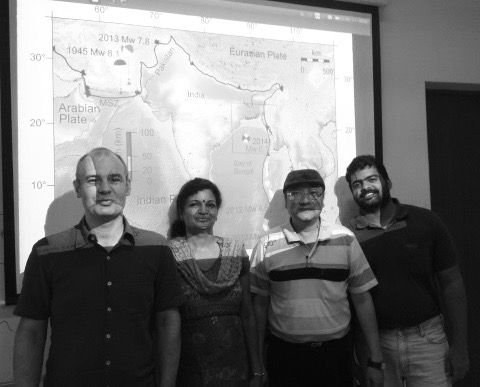Data–Pop Alliance has been conducting ongoing research on Big Data, climate change and environmental resilience. With funding from the UK’s Department for International Development (DfID), we published a synthesis report evaluating the opportunities, challenges and required steps for leveraging the new ecosystem of Big Data and its potential applications and implications for climate change and disaster resilience. The report fed into the World Humanitarian Summit to be organized in Istanbul in May 2016.
This is the seventh podcast in a series of companion pieces that offer insights from the synthesis report.
This companion podcast to the synthesis report “Big Data for Climate Change and Disaster Resilience: Realising the Benefits for Developing Countries,” was funded by UK’s Department for International Development (DfID) was designed to probe experts to speak more about their work and their ideas about the potential and challenges of Big Data.
Titled “Serge Guillas on Tsunami Hazard Systems in India, Local Action, & Uncertainties” this podcast features expert Serge Guillas. Serge identifies both academia and governments as the actors needed to advance the potential of Big Data for climate change resilience in India. He emphasizes the importance of demonstrating that quantified results of Big data for climate change studies are of interest to the governments and can be employed for decision-making in hazard planning, risk assessment, and early warning systems.

Serge Guillas
-
- Dr. Serge Guillas is an Associate Professor in the Department of Statistical Science, University College London. He works on environmental statistics and uncertainty quantification of complex computer models. He is currently the vice-Chair of the SIAM activity group on Uncertainty quantification. He has long been involved in an interdisciplinary effort to assess the long term evolution of stratospheric ozone. His most recent work include uncertainty quantification for tsunami models, with applications to insurance calculations and early warning systems.
For more on our series:
Read the summary of the DfID videos and podcasts
Listen to the full playlsit of podcasts


![M002 - Feature Blog Post [WEB]](https://datapopalliance.org/wp-content/uploads/2025/10/M002-Feature-Blog-Post-WEB.png)





